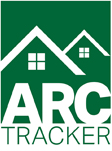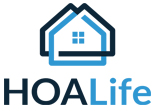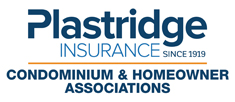
What Do Florida’s Homeowners Associations (HOAs) Need to Know?
Published April 2022

Editor’s Note: The following best practices are provided to help board members in HOAs save themselves from spending extra money, compounding their association’s problems, or wasting their valuable time. Though this counsel can’t cover every scenario, FLCAJ trusts what is covered will be of beneficial use.
 Successfully Managing Your Trees by Planning for Success
Successfully Managing Your Trees by Planning for Success
By Ronnie Simpson, BCMA
As a new board member, you will quickly learn that trees are one of your largest expenses and could pose a potential risk to the community. Most community’s members have different opinions on what proper tree care is and how to manage the various challenges trees present. This often leads to improper and sometimes damaging tree work practices. Trees that are not properly managed can become a major problem for a community if the tree falls and someone gets hurt. Tree care should only be performed when a well-thought-out plan is in place. If your community is soliciting tree care services without a tree management plan, it is highly likely your trees are being pruned too often and most likely improperly. We recommend you have an arborist consulting firm help you create a management plan to put you in control of your community’s trees, safety, and cost.
For more information, call (239) 571-9653 or visit www.arborologyinc.com.
 Running an Architectural Review Committee (ARC) in Florida
Running an Architectural Review Committee (ARC) in Florida
By Robert Thomson
Here are a few items to remember about ARC meetings in Florida according to F.S. 720:
- ARC meetings must be OPEN to the residents of the community. This means conducting a meeting that allows any homeowner, including handicapped residents if needed, to attend and to participate.
- ARC meetings must be noticed. That is at least two days of conspicuous posting to the community.
- Secret ballot voting is NOT allowed for ARC meetings. This means disclosing who voted for or against a request.
Here are some tips to make your architectural review process easier:
- Accept applications electronically—digital is faster, cheaper, easier to manage, and better for the environment.
- Make sure your ARC has access to previous requests. This helps with decision-making consistency.
- Save your energy for requests that matter—i.e., deny a request if it should be denied on its merits, never just because it was turned in late or after the fact.
For more information, visit www.arctracker.com.
 Don’t Be Left in the Dark
Don’t Be Left in the Dark
By Diane Castro
With the slower pace of summer approaching, now is a good time to evaluate your community’s outdoor lighting. Do your community entrances, clubhouse vistas, and other common grounds fade into darkness at night? Professionally designed and installed landscape lighting will beautify your property and add the important benefit of safety and security for residents and guests. More good news: with the continual advancement of LED technology, converting your old lighting to our LED system will save money on two fronts. First, our LEDs use approximately 75 percent less energy than traditional light sources, and the resulting reduction in electrical costs is welcome news to the budget. Second, because our LEDs have a significantly longer life, ongoing maintenance costs are greatly reduced. The grounds and landscaping of your community represent large investments—maximize the enjoyment and utility of these assets at night.
For more information about Coastal Illumination, call (800) 586-0246 or visit www.coastalillumination.com/.
 Five Tips for Writing Effective HOA Violation Letters
Five Tips for Writing Effective HOA Violation Letters
By Tom Normand, Certified Management Accountant (CMA)
Here is a simple, five-step process for ensuring that your notice of violation will sound firm but friendly and lead to compliance.
- Clearly explain the purpose of the letter. Use a professional and cordial tone when describing the violation and provide details to ensure that the person reading your notice will have a complete understanding of the reason for receiving it.
- Provide evidence of the violation. Photos and descriptions of the violation will help the property owner understand it better and realize the best corrective action.
- Request the violation be resolved. The goal of the first notice letter is to politely inform a resident about the violation and ask for a resolution.
- Outline a timeline for resolution. Simple but important—You must tell the person how much time he or she has to resolve the issue.
- Automate and standardize the process for consistency of enforcement. Violation enforcement can be tedious, with the templates, spreadsheets, photos, CC&Rs, and much more.
For more information on HOALife Software, call (833) 462-5433, email tom@hoalife.com, or visit www.HOALife.com.
 Best Practices for Condominium Association Board Members for Insurance Renewal
Best Practices for Condominium Association Board Members for Insurance Renewal
By Paige Gantt
Florida condominium and HOA associations have come under major scrutiny more and more for many reasons, including the recent, tragic Champlain Towers condominium collapse in Surfside.
Your association insurance renewal: Your agent should have provided an estimate of your insurance renewal increase, but did it take into consideration roof age, appraisals, and claims history?
A few factors in your renewal are as follows:
- Appraisals— For condominiums State Statute 718 requires that an association must obtain a new insurance appraisal at least every 36 months. For homeowners associations there is no statutory requirement.
- Roof age— This is changing and may require you to replace roofs in order to obtain coverage.
- Available carrier “markets”— So many carriers have pulled out of writing property insurance in Florida that the options are slim. So, choosing your agent first allows them to get to work and negotiate on your behalf.
We’re here when you need us.
For more information, call (561) 276-5221 or visit www.plastridge.com/hoa-condos/.
 Fining Fundamentals
Fining Fundamentals
By Scott B. Tankel, Esq.
Fining is a powerful enforcement mechanism for boards of directors. The steps below offer a useful guide:
- Establish a Fining Committee—Homeowner and condominium associations must establish an independent fining committee.
- Prepare a Courtesy Letter—The letter should detail the violation and fine amount and cite the restriction in violation.
- Board Levies a Fine—If the violation continues, the board of directors must hold a duly noticed meeting to levy the fine(s) and document it in the minutes.
- 4. Notice of Appeal—An appeal letter must be issued at least 14 days prior to a hearing before the fining committee. It should state the owner has been fined, provide authority for the fine, and include the cost.
- 5. Fining Committee Hearing—Regardless of whether the owner appears, the fining committee should meet. An invoice can then be issued, with payment due no sooner than five days from the date of the letter.
For more information, call (727) 239-0295 or (888) 266-3652, email info@TankelLawGroup.com, or visit www.TankelLawGroup.com.
 Why You May Need to Budge from your Current Budget Process
Why You May Need to Budge from your Current Budget Process
By Stacey L. Wood, CPA
As a board member, one of the many areas you are tasked with is presenting a budget to your residents. Unfortunately, all too often the budget isn’t worth the paper it is printed on. One of the most common complaints from residents is either our budget is too high or it is too low. In either case, you have issues. The following are some ideas you should consider when you are sitting down to prepare your next budget:
- Avoid “backing into” the numbers. All too often associations, while trying to keep the peace with residents, avoid the dreaded maintenance increase, so they manipulate the numbers to equal a desired maintenance fee.
- Always consider historical expenses when preparing a current budget. Previous expenses are an excellent gauge for what future expenses will be.
- Analyze current contracts. These are the easiest numbers to include in your budget since they are pre-determined.
- If you haven’t already done so, obtain a reserve study. This is the most e
ffective way to plan your cash flow needs for future major repairs and replacements.
For more information on how we can assist you with your accounting and consulting needs, please contact The Bottom Line at stacey@blineaccounting.com.
 Counsel is Key
Counsel is Key
By D. Jefferson Davis
Congratulations on becoming or remaining a board member. This exciting opportunity is fulfilling but can be frustrating and overwhelming if you don’t have the right support. Of course, the vendors that take care of and maintain your property and structures are vital. However, almost all past board members will tell you that your property management company and your attorney are key to running an efficient administration. Find a property management company that is highly recommended by other boards. The property manager is your conduit to the attorney for day-to-day issues. Also, find an attorney with an association-based firm, with a reputation for prompt responses, effective communication, successful collections, and valued counsel. The most important ability your attorney has is availability. I hope you consider The JD Law Firm as I handle all matters personally and have since the firm’s inception. I hope to be “Your Association’s In-House Counsel.”
For more information, call (407) 864-1403, email Jeff@TheJDLaw.com, or visit www.TheJDLaw.com.
 Understanding the Value of a Preventive Inspection
Understanding the Value of a Preventive Inspection
By Jim Ilardi
The Florida legislature is working through potential new requirements, but experts agree that a preventive inspection can save you very costly repairs and provide peace of mind. A preventive inspection, if done properly, should provide the following:
- An unintrusive assessment of your property
- A comprehensive inspection report
- An in-depth “how to” maintenance report designed to eliminate costly structural damage in the future
- A guide on how to manage reserves and assessment dues
WHO benefits from preventive inspections?
All multifamily residential buildings benefit from preventive inspections, however older buildings and coastal buildings are more likely to have structural issues that are not visible.
WHY?
Proactive inspections ensure condominium and association boards are the following:
- Proactive—Inspect and troubleshoot before structural issues occur
- Prepared—Future legislative changes may impact COA and HOA budgets
- Prevention focused—Actively working on maintenance plans generated from inspection reports
For more information about preventive inspections, call True Property Inspections at (407) 395-4144.



